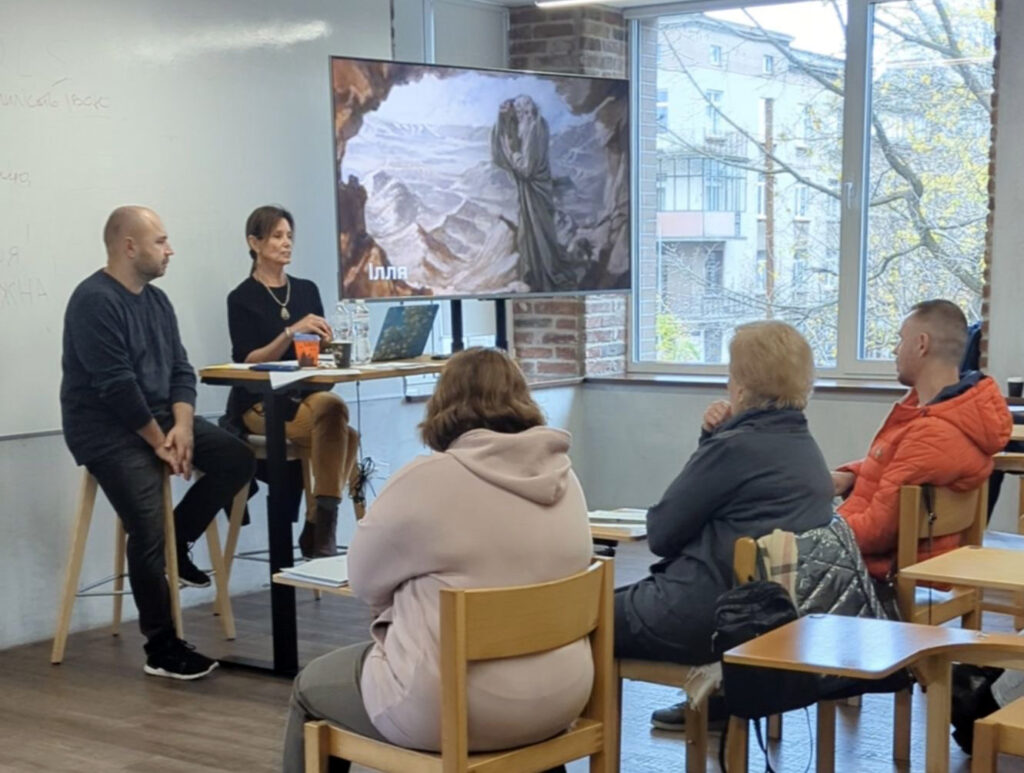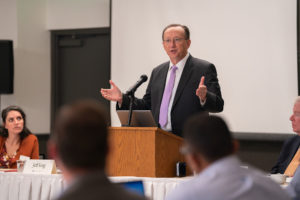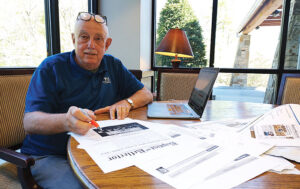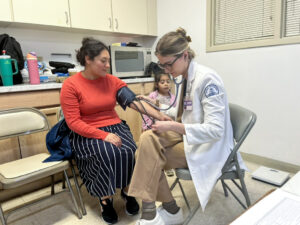
LVIV, Ukraine (BP) – Baptists in the U.S. and abroad continue to help Ukraine meet mental health needs exacerbated by Russia’s latest war on the country, a conflict nearing its second anniversary.
Sandy Fields, a licensed professional counselor and mental health services provider (LPC-MHSP) in Nashville, Tenn., is among many who have helped Ukrainian Baptist Theological Seminary (UBTS) in Lviv train laypersons to serve as trauma helpers at 17 humanitarian WeCare centers across Ukraine.
“I felt called by God to do it,” Fields said of her outreach to Ukraine. “I think this is going to be a trauma call for generations. And how we as the world respond to this can help them develop resiliency, or we can make it worse for them.”
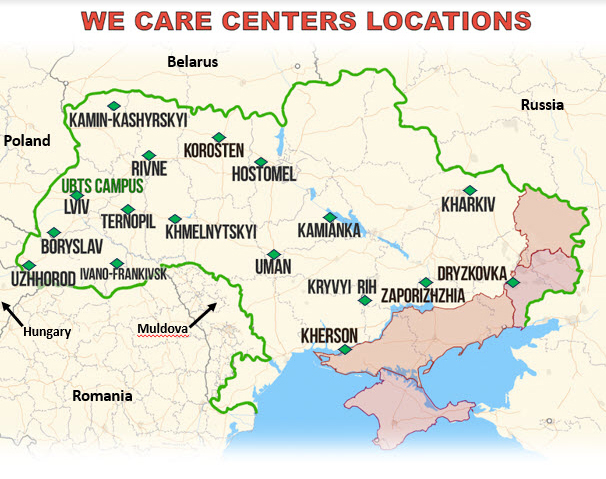
More than 10,000 Ukrainian civilians had been killed in the war through November of 2023, the United Nations reported. And while Ukraine has not released a number of military deaths, the country’s former prosecutor general, Yuriy Lutsenko, told ABC News Jan. 9 that around 30,000 Ukrainian troops were being killed or badly wounded per month. He estimated the toll to date as 500,000 killed or wounded.
Ukrainians will need continued training in trauma care if they are successful in war, Fields said. Anxiety, depression, fractured and stressed families, spousal abuse and distorted views of the future are among current mental health challenges that will only increase.
Fields found in Ukrainians a resiliency in meeting the war’s challenges.
“It’s hard, as anyone would struggle with their cities being bombed,” she said. “But I think overall they have come together as a people. That was one of the things that struck me is that they were certainly supportive of the war effort and of each other. I mean it struck me, it was so deep in their culture and the way that they spoke.”
Fields, who owns Theratribe online counseling center, participated in an outreach in late 2023 organized by the Ukraine Partnership Foundation (UPF) and UBTS. First Baptist Church of Nashville funded her travel.
She trained volunteers in various aspects of trauma, defining the emotional response, how it impacts people and ways volunteers can help.
“Many of the people who come (to WeCare Centers) have lost their home, they’ve lost their job, they’ve lost their community,” Fields said. “Their needs were just overwhelmingly many.
“At the same time, the people are also very brave. They are a more collective culture, and so they (were) looking for ways to help each other that were simply amazing. People there give everything that they can to help each other.”
WeCare Centers were launched out of UBTS’s humanitarian work in the early months of the war, when the seminary paused classes, housed refuges and served as a distribution hub for supplies. The 334 partners supporting WeCare centers served nearly 140,000 individuals in May – November 2023, UPF said on its website.
Southern Baptists have extended broad-based help to Ukraine, including many churches who send funds and volunteers; Send Relief, Southern Baptist Disaster Relief, Southeastern Baptist Theological Seminary and others.
Ukrainians had been slow to embrace mental health care since its 1991 independence from Russia. Under Soviet rule, psychological assessments were used to persecute and imprison those who disagreed with governmental policies.
Even before the war, Psychiatric Times reported in March 2022, mental illness including depression, alcohol abuse and suicide was more prevalent in Ukraine than in other countries. Mental health disorders were the country’s second leading cause of disability and affected 30 percent of the population, Psychiatric Times said, citing a lack of trust in the psychiatry system, stigma and a lack of awareness and understanding.
The war has only increased mental health care needs, with domestic violence spiking as injured soldiers return home.
“War stress has put a pressure on families, and so domestic violence has increased exponentially there, according to the U.N. and according to Amnesty International,” Fields said. “Ukraine calls it the second front.”
In her training sessions, she addressed domestic violence from a biblical perspective. The war is changing the nation’s perception of care, said Fields, who hopes for another opportunity to help.
“I think people are seeing the need for it now,” she said, “and are moving in that direction.”
–30–
